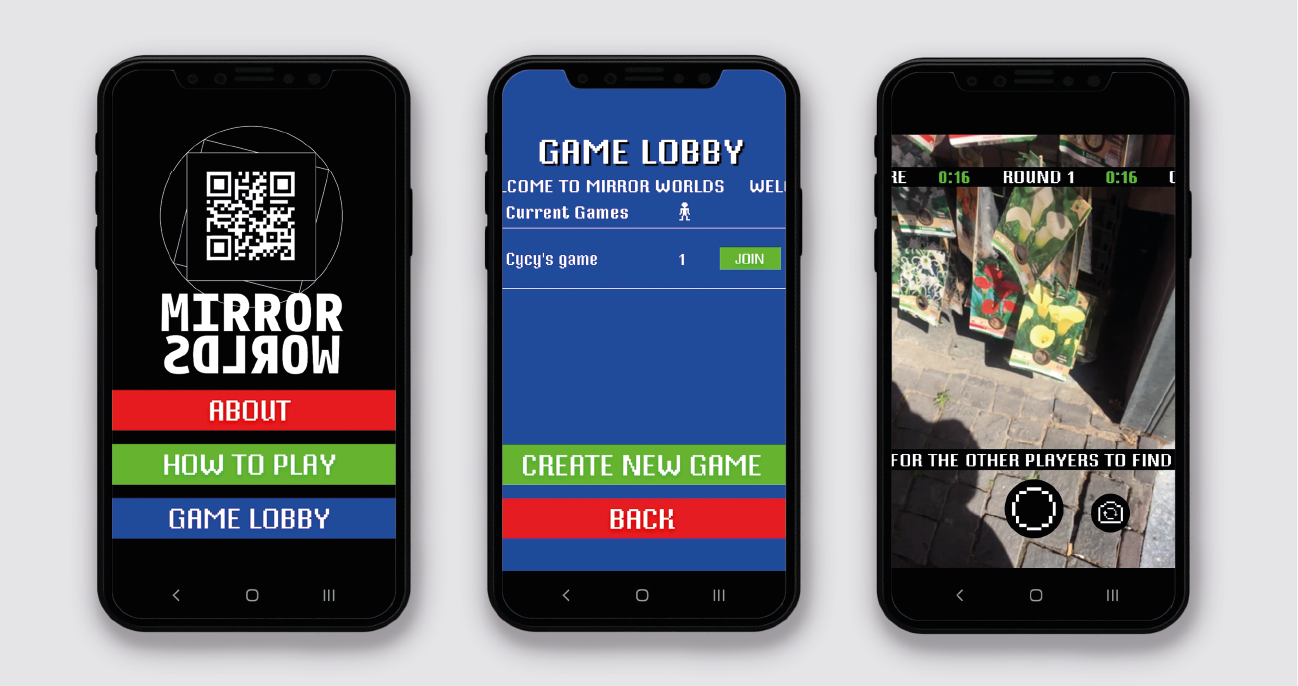
Mirror Worlds (2018 - 2020) is a quick browser-based smartphone game that you can play with your friends when you’re out on the streets.
All players take a picture of something around them in secret. In the next round it is up to you to find and capture all these pictures!
Play the game: www.mirrorworlds.io
Developed in collaboration with Arran Lyon.
All players take a picture of something around them in secret. In the next round it is up to you to find and capture all these pictures!
Play the game: www.mirrorworlds.io
Developed in collaboration with Arran Lyon.
Between 2018 and 2020, I was the first artist-in-residence at the Rathenau Instituut, orchestrated and made possible by SETUP. It was an interesting experiment, where we were finding ways on how scientific and artistic practices can benefit from each other. The goal was to make artistic / design based research an integral part of the research process.
During that time, I was part of a research team focussing on the societal consequences of Augmented Reality. We wanted to delve deeper into the friction that occurs when social rules of the public, physical space don’t overlap with those of the AR digital space.
Mirror Worlds was created as a tool to reach out to that friction. What happens when you play the game in crowded places such as a train station? Or in places of respect, like a cemetery?
We used Mirror Worlds as a research instrument and as a case study in the report. And it is a really fun game.
During that time, I was part of a research team focussing on the societal consequences of Augmented Reality. We wanted to delve deeper into the friction that occurs when social rules of the public, physical space don’t overlap with those of the AR digital space.
Mirror Worlds was created as a tool to reach out to that friction. What happens when you play the game in crowded places such as a train station? Or in places of respect, like a cemetery?
We used Mirror Worlds as a research instrument and as a case study in the report. And it is a really fun game.
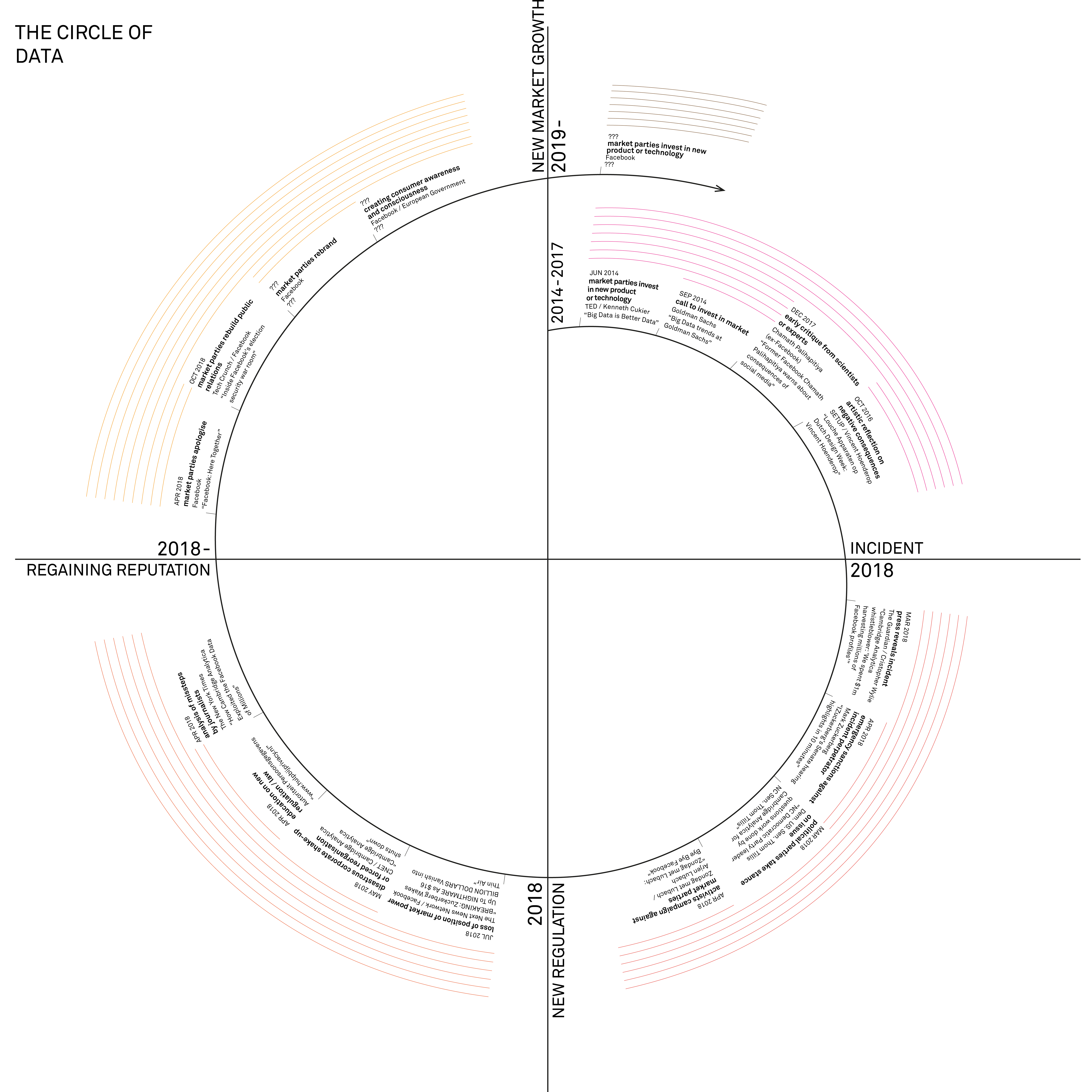
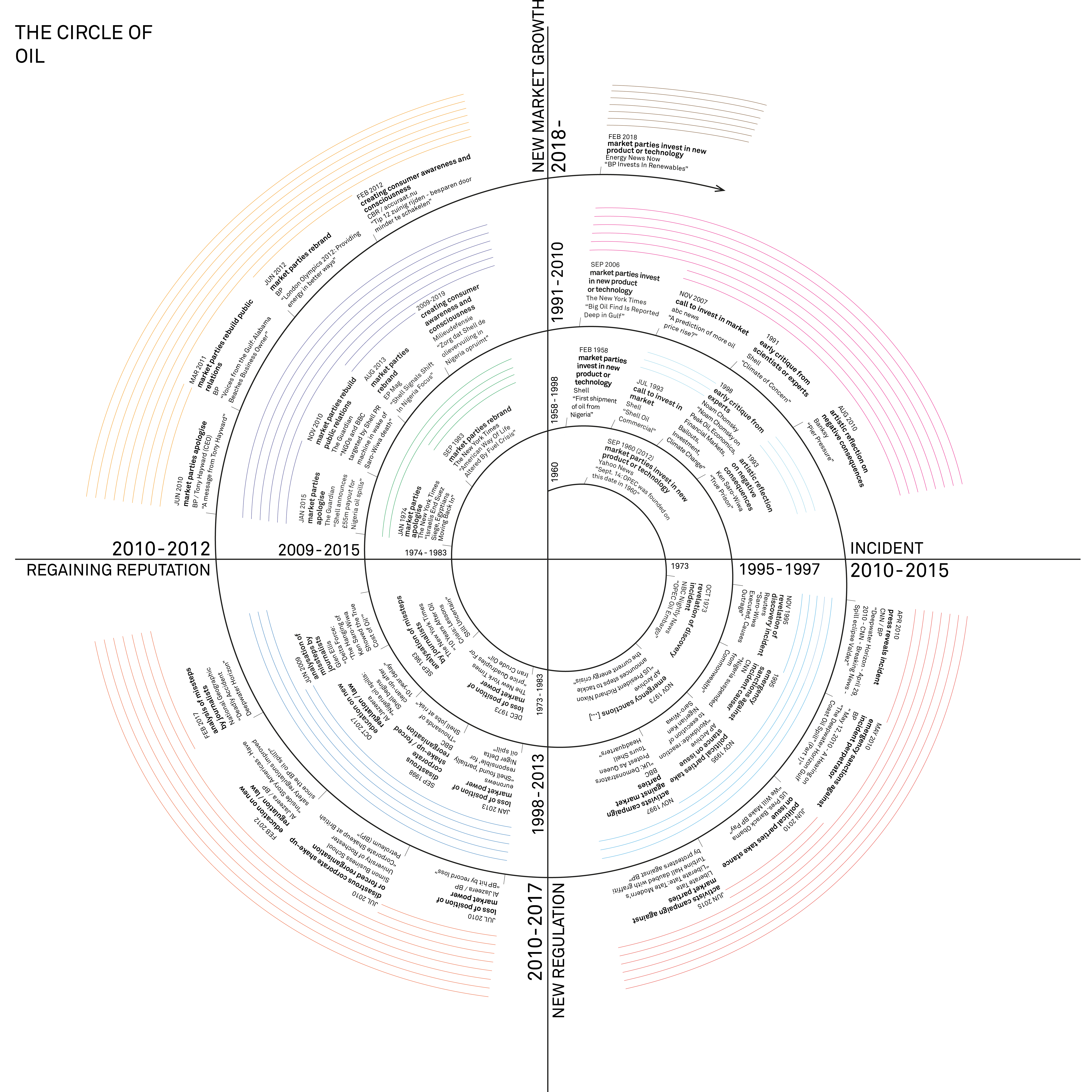
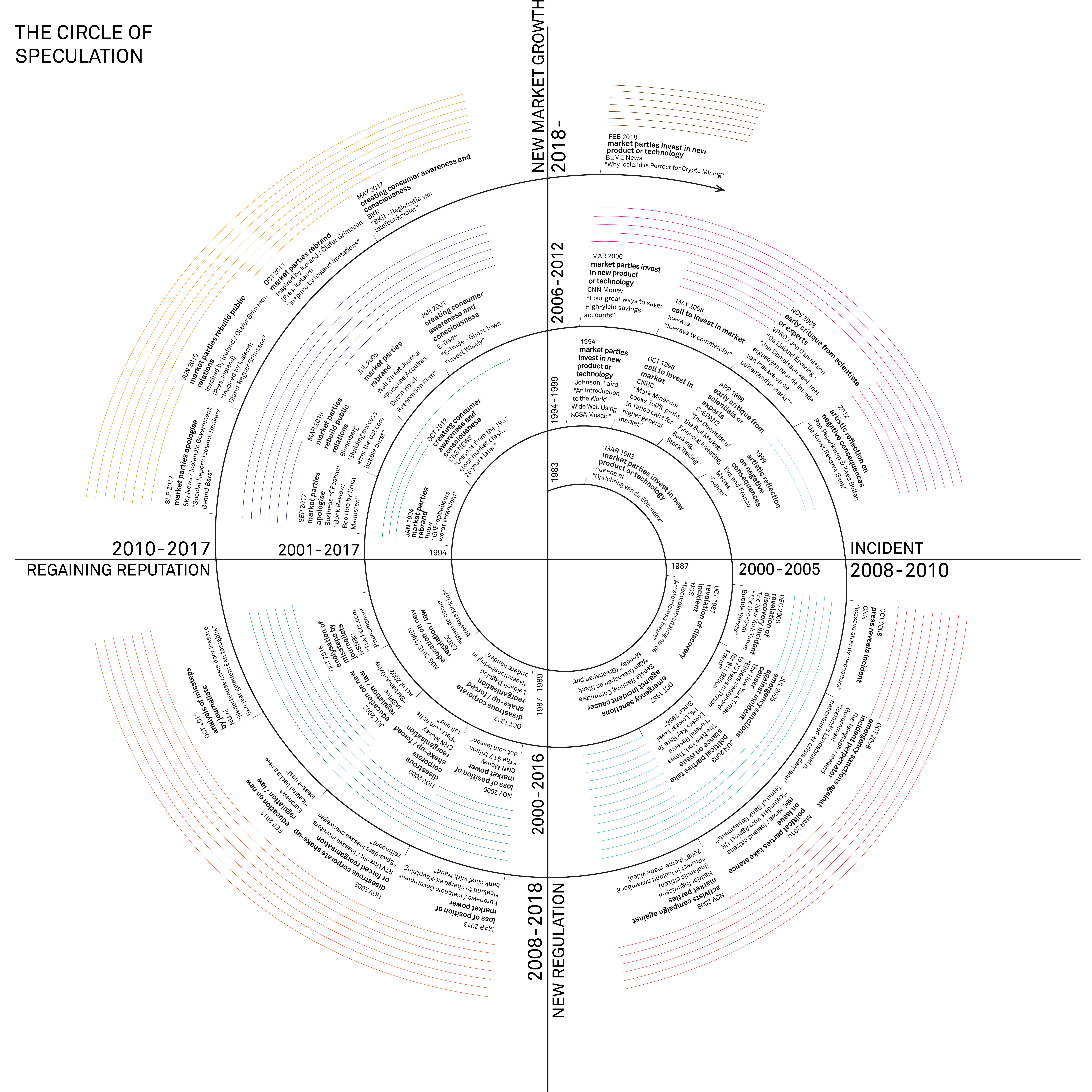
My research at Rathenau Instituut 2018-2019 ︎ The Cycles of Innovation
In March 2018, 29-year-old data consultant Christopher Wylie blew the whistle on a scandal that would change how we think about data forever. Wylie revealed that his former employer, the political consulting firm Cambridge Analytica, had secretly harvested data from millions of Facebook users with Facebook’s consent, using it to manipulate voters in the American presidential election in 2016. The General Data Protection Regulation (GDPR) came too late.
When it comes to modern industries, it seems that disaster has to strike first before politicians, lawyers, and policy makers are are truly willing to act. By examining the timelines of other crucial incidents from other controversial industries, their reluctance to regulate becomes even more noticeable.
When it comes to modern industries, it seems that disaster has to strike first before politicians, lawyers, and policy makers are are truly willing to act. By examining the timelines of other crucial incidents from other controversial industries, their reluctance to regulate becomes even more noticeable.
Every controversy follows a similar cycle. News headlines cover a company’s milestones. There’s early critique from insider experts. Then: breaking news. A scandal. A senate hearing featuring a very nervous business leader. A few years later, a “What went wrong?” documentary. Repeat. It’s always the same.
The timeline of the Cambridge Analytica and Facebook scandal is not yet fully complete, but by looking at recent announcements (such as Mark Zuckerberg’s March 2019 statement about his “Privacy-Focused Vision” for Facebook) and developments (such as Facebook’s new VR headset, Quest), we can see how the cycle might begin again. What can we expect from Facebook in the future? And what can we, as policy makers, and as citizens, change in our strategy to prevent the market from creating new disasters?
The timeline of the Cambridge Analytica and Facebook scandal is not yet fully complete, but by looking at recent announcements (such as Mark Zuckerberg’s March 2019 statement about his “Privacy-Focused Vision” for Facebook) and developments (such as Facebook’s new VR headset, Quest), we can see how the cycle might begin again. What can we expect from Facebook in the future? And what can we, as policy makers, and as citizens, change in our strategy to prevent the market from creating new disasters?
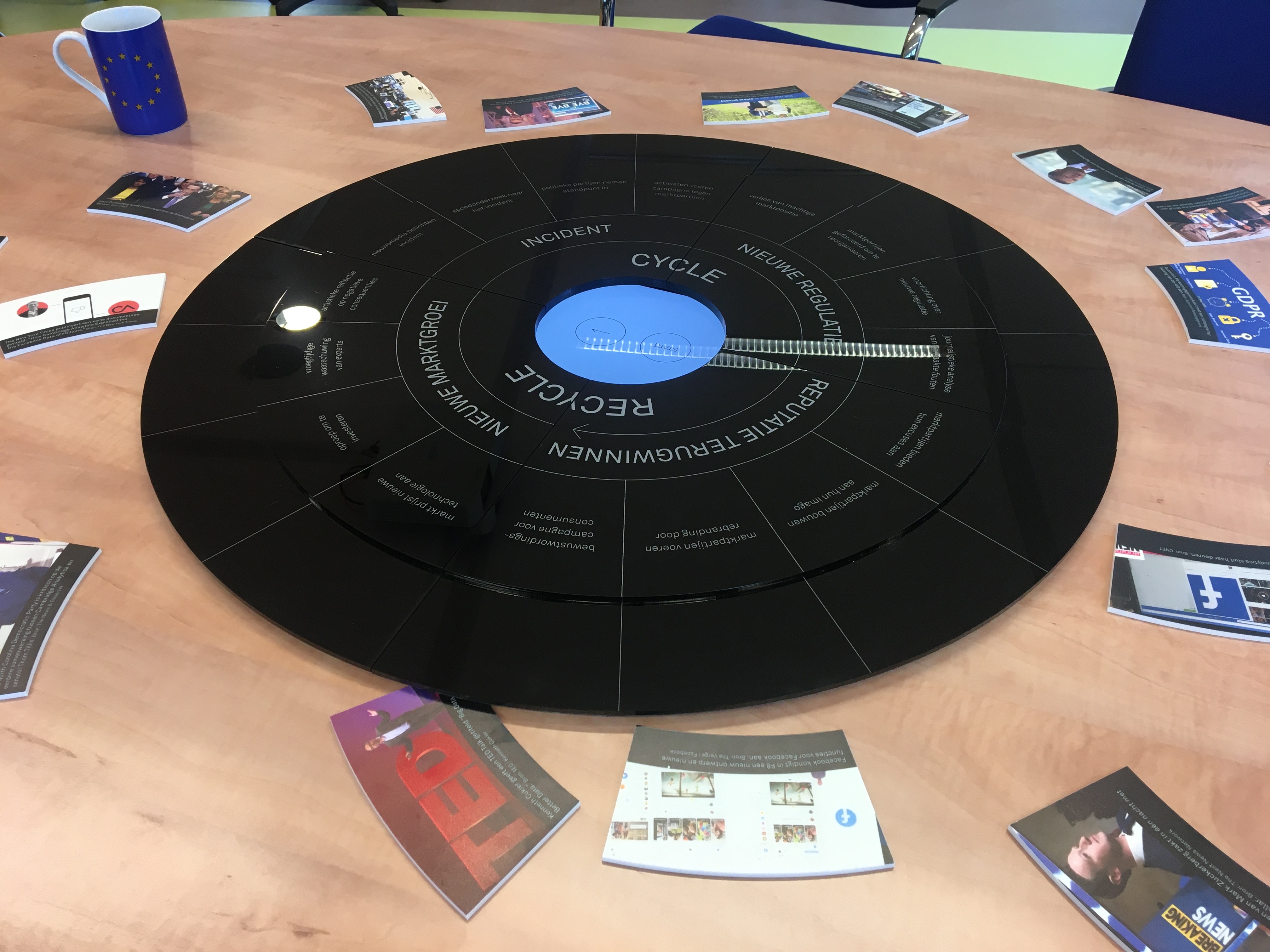
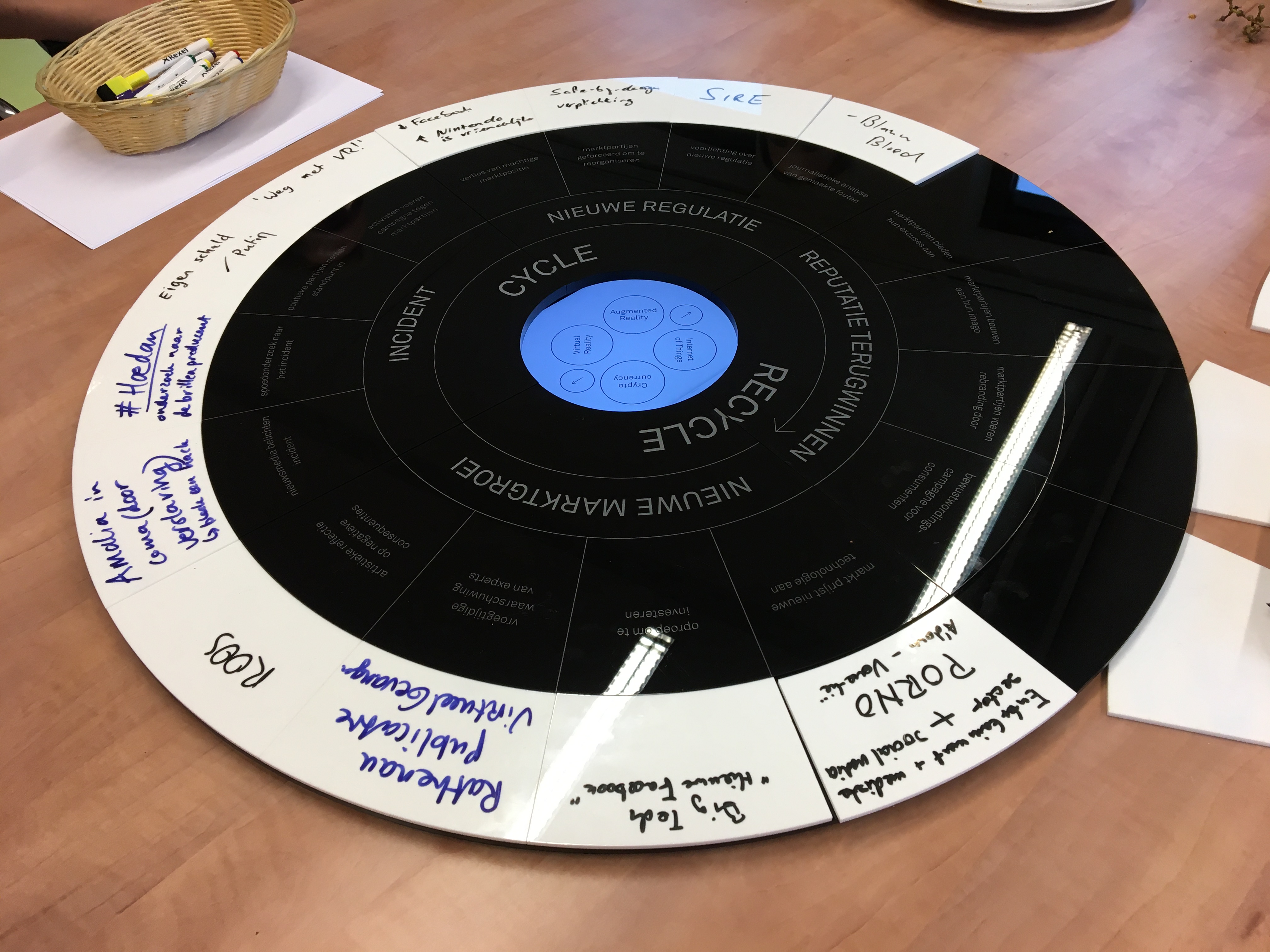
Turning the Cycles of Innovation into Cycle Recycle a multi-media board game icw Djono de Koning. Players figure out the current cycle and can speculate about how to break it.